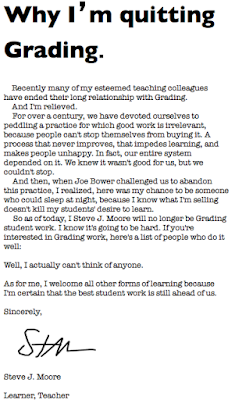The clinic was run by a man from Eastern Europe. I could tell he had a real passion for soccer. I was impressed with the focus of the clinic -- have fun and be active were the two primary goals of the clinic. And we were going to do this by ensuring that the kids had as many ball-touches as possible. That is, we wanted the kids to kick the ball as many times as possible inside of the 45 minutes that we played. The idea being, kids have the most fun when they actually get to play the ball, and as far as future development goes, the kids will only ever improve at soccer if they kick the ball a lot. And it's more than just coincidence that the two go hand-in-hand.
I thought this all made a lot of sense.
As a sidebar, the man running the clinic told us a story about how his childhood soccer coaches were very old fashioned and traditional. So much so that they believed athletes shouldn't drink water while playing soccer. I think their reasoning was that water would bloat you and slow you down. His point was that we know better today and that the kids need to drink water routinely through out activity.
We all had a good laugh at the expense of those old-fashioned coaches who were silly enough to believe in such a myth.
My point here is that I hope we are not arrogant enough to believe that we are not still foolishly satisfied by a great number of myths.
I hope we are not so pompous to believe that other people years from now won't look back on some of what we do today and have a good laugh tomorrow.
The problem is that everything is obvious once you know the answer. We know today that drinking water is not something to be avoided during physical activity - rather it is something to be encouraged. It just makes sense. Common sense.
There is a danger in all this that Ellen Langer explains in her book The Power of Mindful Learning:
Not only do we as individuals get locked into singleminded views, but we also reinforce these views for each other until the culture itself suffers the same mindlessness. There is an awareness of this in science. Scientists proceed along a path gathering data that builds an accepted wisdom. At some point someone turns everyone's attention to a very different view of the previously acknowledged truth. This phenomenon happens frequently enough that scientists are generally not surprised by what is called a paradigm shift. In a recent New York Times article psychologist Dean Radin described four stages of adopting ideas: "The first is, 1.'It's impossible.' 2. 'Maybe it's possible, but it's weak and uninteresting.' 3. 'It is true and I told you so.' 4. 'I thought of it first.'" I would add a fifth stage, "We always knew that. How could it be otherwise?"So how do we avoid this kind of auto-pilot amnesia?
I think the answer lies somewhere in that we must remain acutely aware of how what we have done in the past and what we are doing in the present relates to our ultimate goals.
While it's true that wishing tomorrow to be just like yesterday won't ever make today a better place, it's also true that pretending yesterday and today are as good as it gets will damn us all to the tyranny of the here and now.


